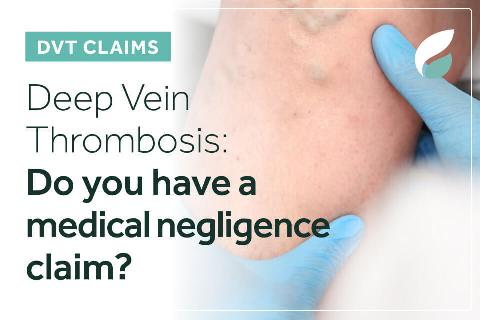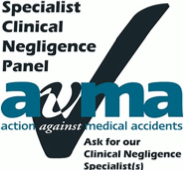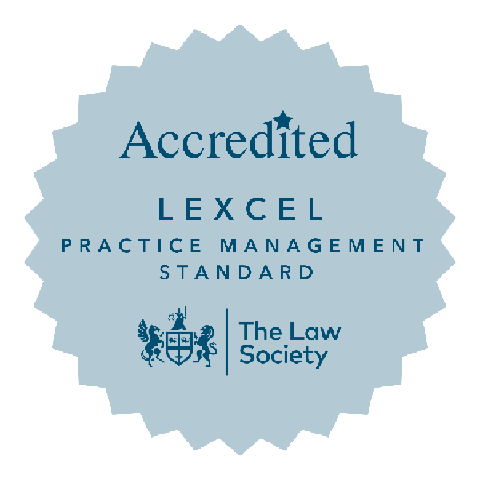- Home >
- DVT Negligence Claims
Deep vein thrombosis (DVT) occurs when a blood clot forms in one of the body’s deep veins. Without the right diagnosis or treatment, this can have life-changing consequences for patients, such as chronic swelling, amputation or sadly even death.
If you or a family member has endured subpar care for their DVT, our solicitors can support you at every step. Drawing from more than 30 years of medical negligence experience, trust us to secure the compensation, justice and answers you need to move past what happened.

Do you have a DVT negligence claim?
Although DVT can be hard to spot, most medical professionals take the right steps to diagnose and treat the condition. However, in rare cases, mistakes happen that cause people avoidable pain and suffering, and potentially lead to life-threatening medical conditions.
Whether you’ve been affected by a DVT misdiagnosis or a negligent delay in treatment, we can help you pursue your right to justice. Our professional medical negligence solicitors work tirelessly to understand what happened to you and guide you to a settlement that secures your future.

The specialist DVT claims solicitors for Essex & East Anglia
From chest pain and shortness of breath to varicose veins and post-thrombotic syndrome, we understand the impact of deep vein thrombosis. That is why we handle your case with the care and attention you deserve, simplifying the process as much as possible.
Since 1993 we have recovered millions in compensation for those affected by substandard DVT care, meticulously reviewing all evidence to build the strongest possible case. With 96% of claims resolved out of court on a ‘no win, no fee’ basis, we ensure you can pursue your claim with real peace of mind.
What does our DVT medical negligence claim process look like?

A free initial consultation
Call us, request a callback or complete our online form and we’ll assess if you have a valid medical negligence claim.

Funding your claim
Discover the ways we can fund your claim without you paying a penny at any stage of the process.

Investigating evidence
We gather medical records, witness statements and more to learn what happened to you and prove your claim.

Instructing independent medical experts
We work with impartial, experienced medical experts to establish whether your injuries were due to substandard medical care.

Valuing your claim
We assess your health and financial losses to accurately estimate how much compensation your claim is worth.

Presenting your case
We contact the Defendants and the Courts on your behalf to set out your allegations and receive a response.

Negotiating a settlement
We work to achieve a fair settlement for you outside the courtroom – this is how 96% of our cases end.

Preparing for Trial
If we must proceed to Trial, we fully prepare you for what to expect so you receive the right result in court.
FAQs about DVT negligence claims
What is DVT negligence?
DVT negligence occurs when medical professionals fail to properly diagnose, treat or manage deep vein thrombosis, resulting in avoidable pain or suffering.
While such incidents are thankfully rare, substandard care tends to happen when healthcare providers fail to take the necessary precautions for patients at risk of deep vein thrombosis.
If you or someone in your life has been negatively affected by the actions or inactions of a doctor, nurse or other medical professional, you may have the right to seek justice.
What are the long-term effects of untreated DVT?
When DVT symptoms appear, they are usually sudden. If left untreated for some time, deep vein thrombosis can lead to a range of serious and potentially life-threatening conditions, including:
- Varicose veins
- Post-thrombotic syndrome
- Phlegmasia cerulea dolens
- Pulmonary embolisms
- Difficult breathing
- Amputation
How do I know if I have a valid DVT negligence claim?
To prove medical negligence occurred in your case, we must answer three important questions:
- Did a medical professional breach their duty of care to you during your treatment?
- Did you suffer excessive injury, suffering or loss as a result of your treatment?
- Was your medical professional’s breach of duty the direct cause of your amputation?
For your claim to be considered valid, it must meet all three criteria. If it does not satisfy one or more of the above questions, then you do not have grounds for a claim.
At Gadsby Wicks, our highly experienced solicitors have a strong track record of managing DVT negligence claims. This means we can give you an honest, accurate answer about whether your claim is likely to succeed.
Find out if you have grounds to pursue DVT negligence compensation by answering a few quick questions on our “Do I have a claim?” form.
What are common examples of negligence in DVT cases?
The symptoms of deep vein thrombosis are relatively common. As a result, if a healthcare professional believes their patient is at risk of developing DVT, they are obliged to perform further examinations – such as D-Dimer blood tests and Doppler Ultrasounds – to verify this.
However, if a medical professional does not properly identify these risks or follow appropriate guidelines, it can result in a failure to diagnose DVT. This is one of the most prevalent causes of DVT negligence, and has the potential to lead to serious complications that may have been avoided with an accurate diagnosis.
Deep vein thrombosis treatment could also be considered negligent if:
- A doctor, nurse or other healthcare provider fails to take preventative measures for high-risk patients, such as providing anticoagulant medication or compression stockings
- Patients are infrequently monitored while in hospital, as data suggests there is a close correlation between patients who have extended stays in healthcare settings and cases of DVT
- Test results are lost, improperly catalogued or not acted upon in a reasonable timeframe
How much compensation can I claim for DVT negligence?
Every DVT claim is unique, meaning the value of your settlement will depend on your specific circumstances.
For example, if delayed treatment of DVT results in a patient losing a leg or foot, this would likely result in more compensation for a professional athlete or construction worker than an office employee. This is because the nature of an injury like this would have greater long-term ramifications on their lifestyle and employability, affecting their future earnings.
Other factors may also influence the amount of compensation your claim will be worth, such as:
- Your age
- The extent of your injury
- Your occupation and salary
- Whether you live alone or with others
- The daily impact of your DVT-related health problems
As specialist DVT negligence claims solicitors, we take the time to fully recognise how your injury has affected you or your loved one’s life, and ensure the compensation you receive reflects this.
Can I claim if a family member died due to DVT negligence?
Yes. In the event a member of your family sadly passes away due to DVT negligence, it is possible to pursue a claim on their behalf.
While no amount of compensation will ever replace what has been lost, the settlement from a successful DVT negligence case can ease the financial burden on your family, and make life after this tragedy a little more manageable.
It is important to note that only one claim can be brought forward for compensation in these scenarios. Additionally, whoever brings that claim must include the claims of everyone who may be entitled to compensation.
If the deceased had written a Will before their death, this duty will usually fall to the executor of the Will. If the deceased died without a Will, then a family member – typically a spouse, child or parent of the deceased – should carry this out.
You can learn more about the legal process for DVT claims of this nature in our article on death by medical negligence claims.
Contact our expert DVT negligence claims solicitors
If you or someone you love has been impacted by DVT negligence, speak to someone about your options. Our team is here to listen and advise you on your next steps.

Lexcel accredited medical negligence claims solicitors
We are proud to be a Lexcel-accredited practice. The accreditation is a mark of quality and comes directly from the Law Society.
A recent assessment described us as a “Centre of Excellence” and we continue to operate to the highest standards across all main areas of our field. These include client care, case management, financial management, structure and strategy, people management, risk management, information management and file management.




Industry Recognised

